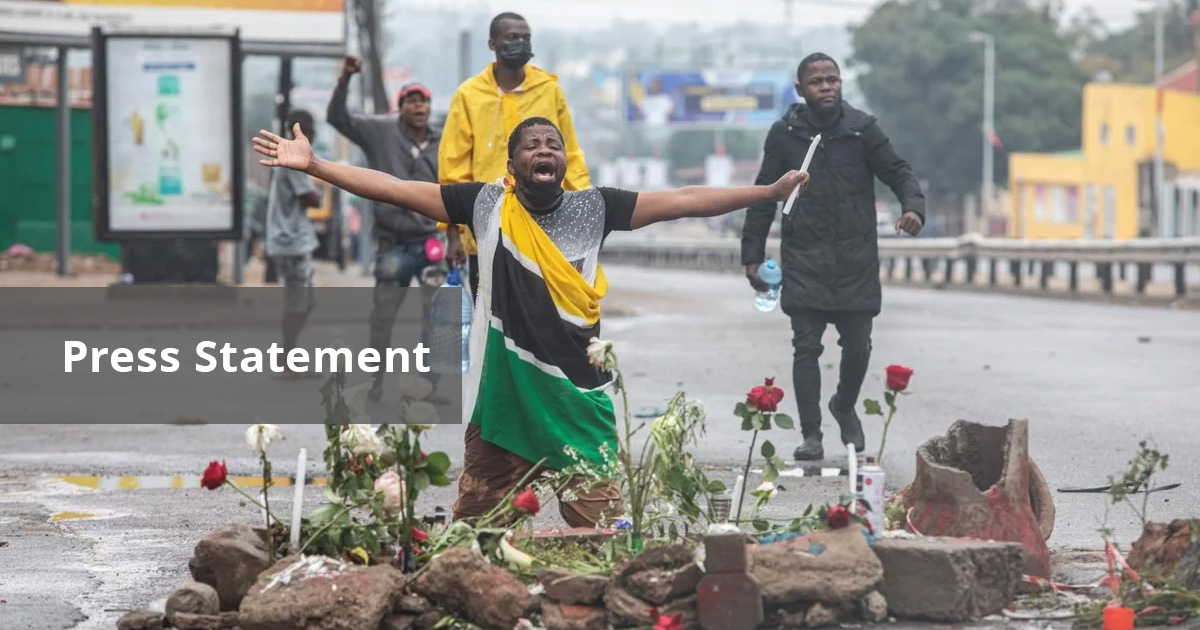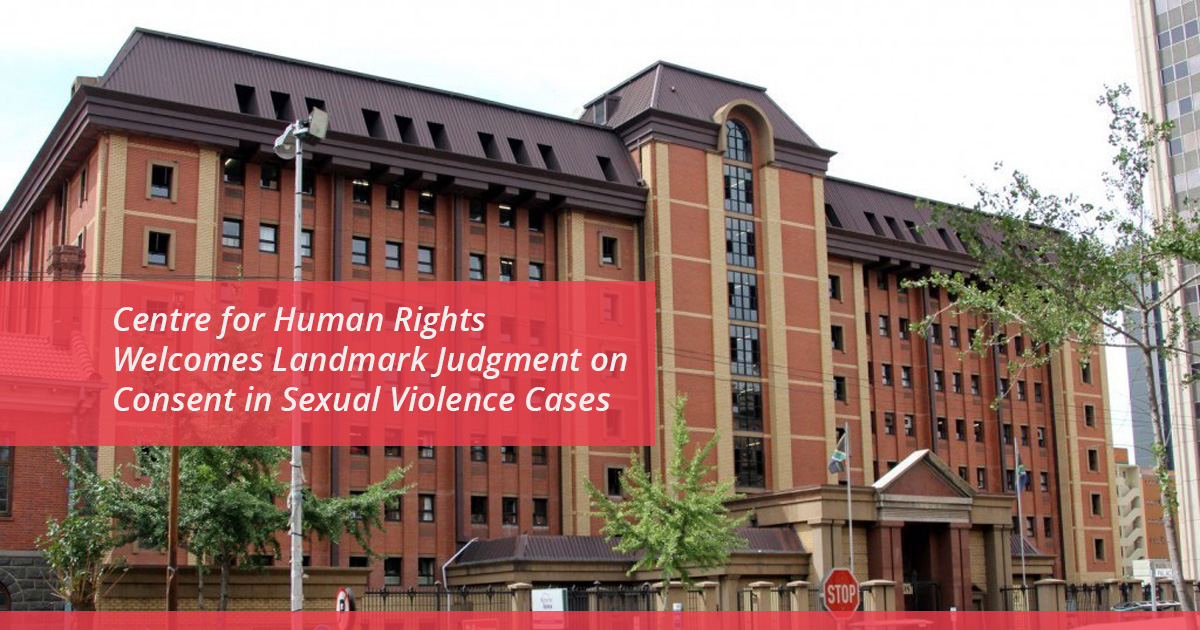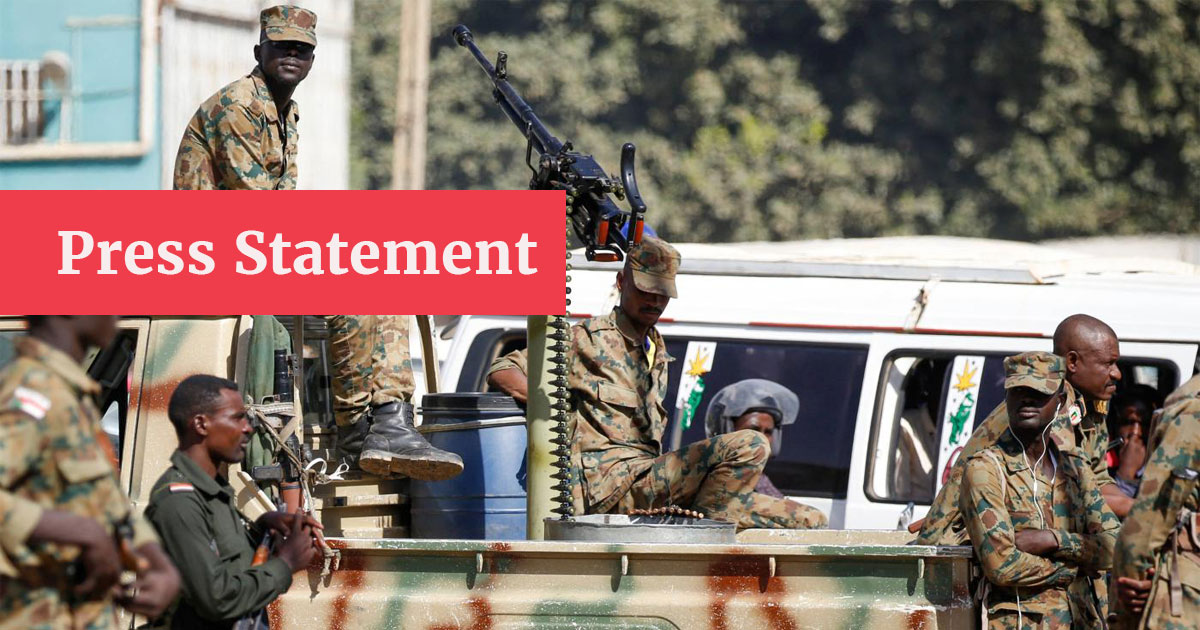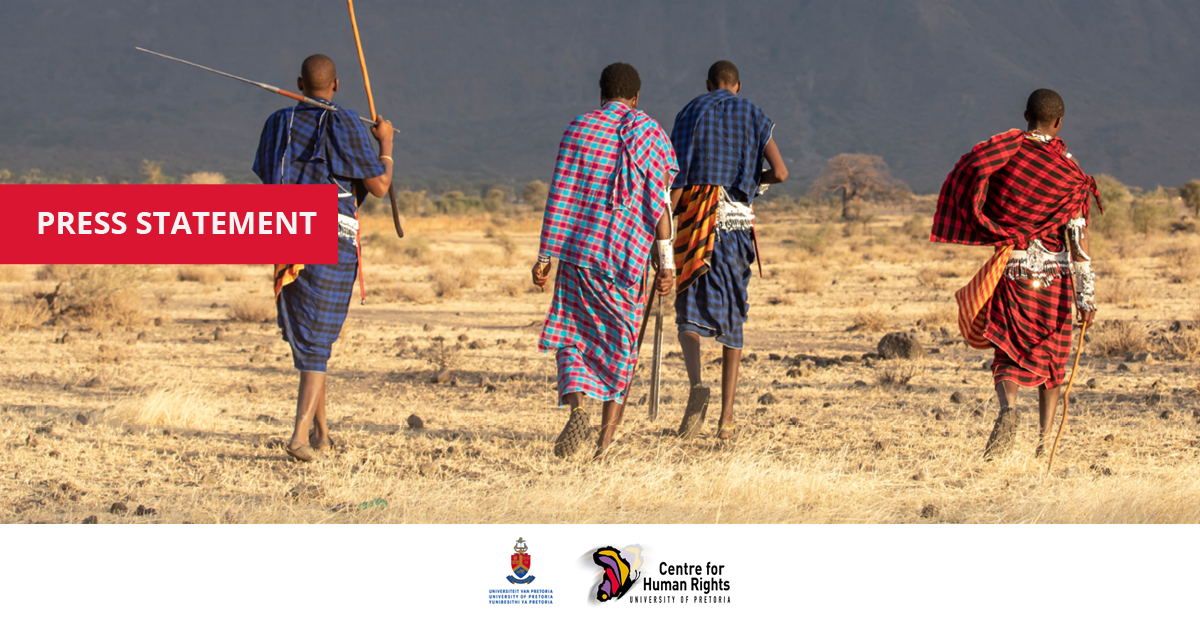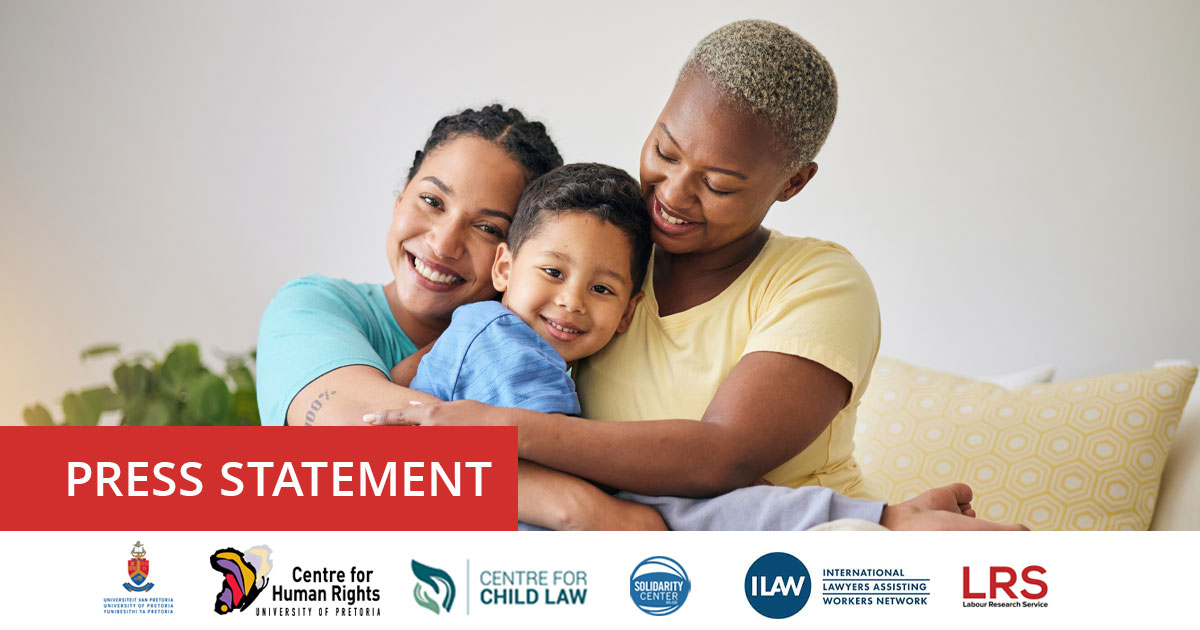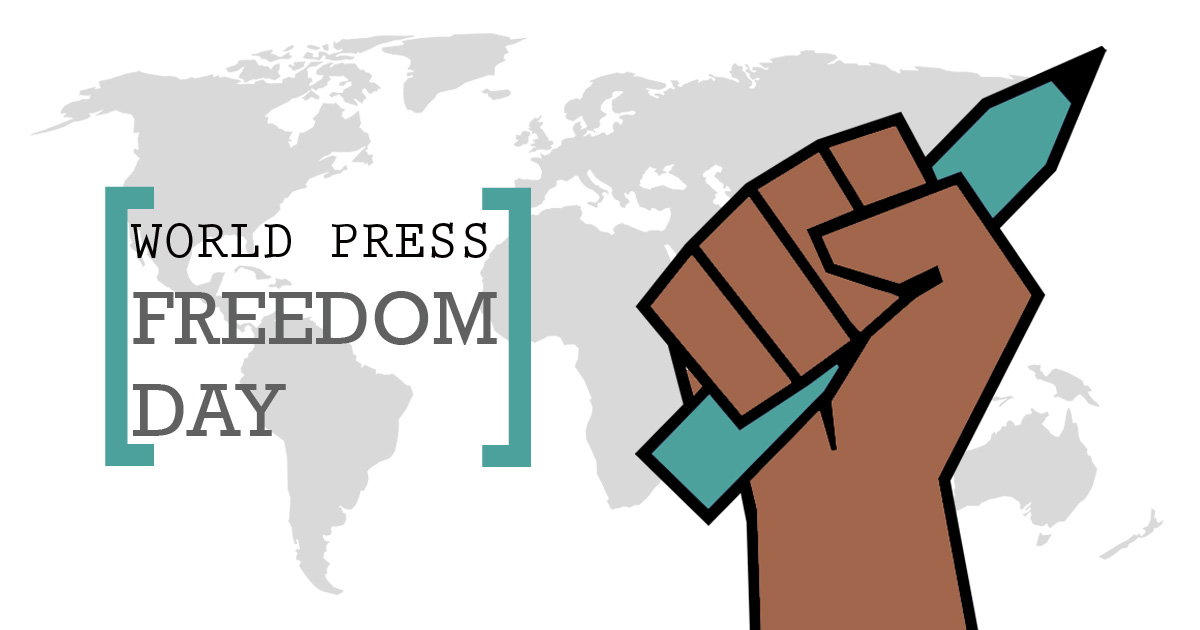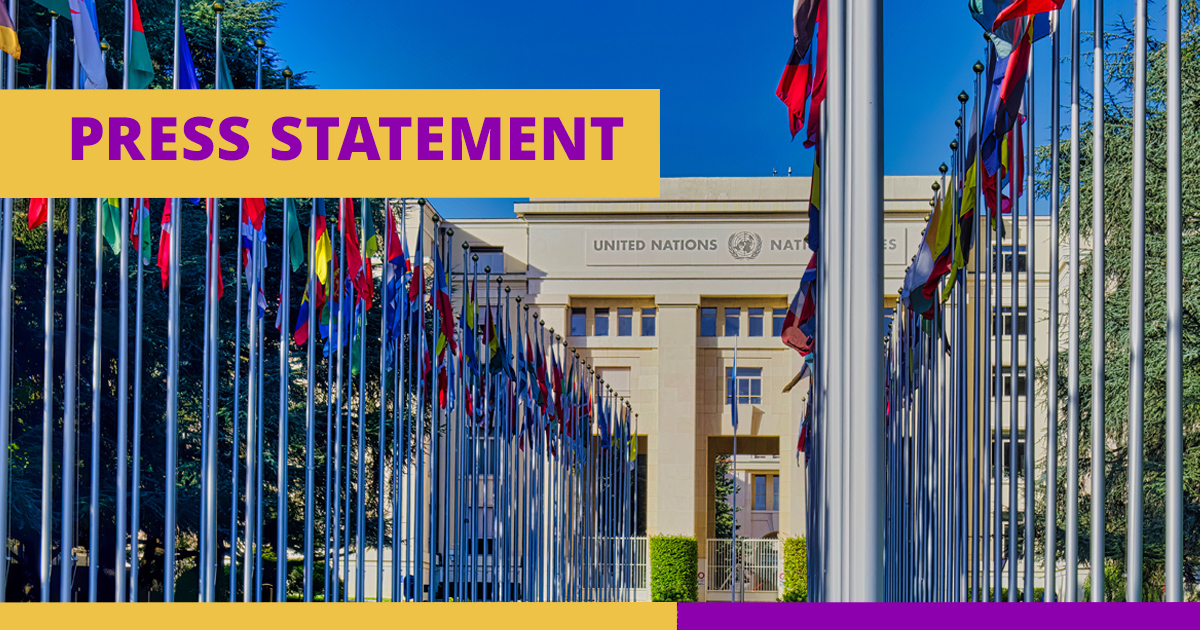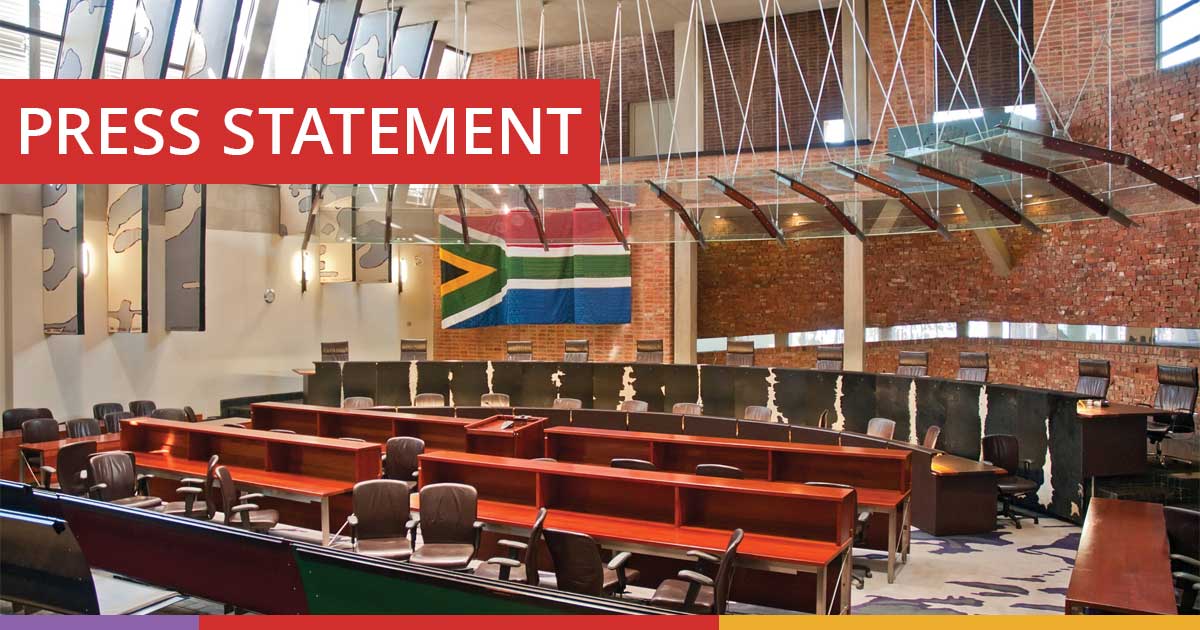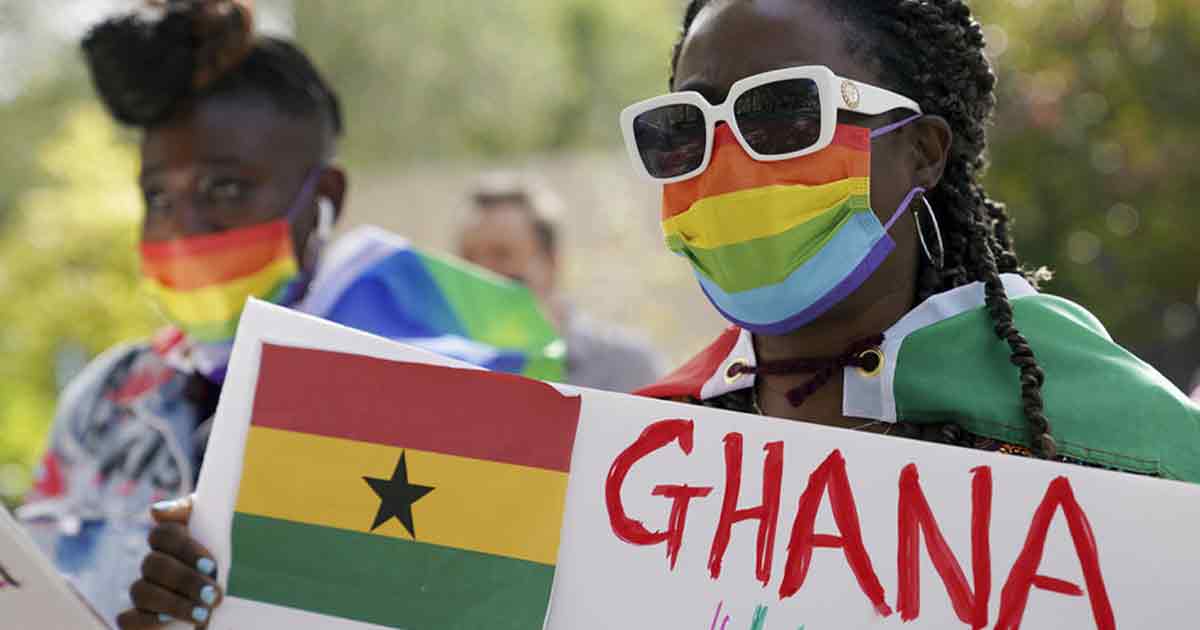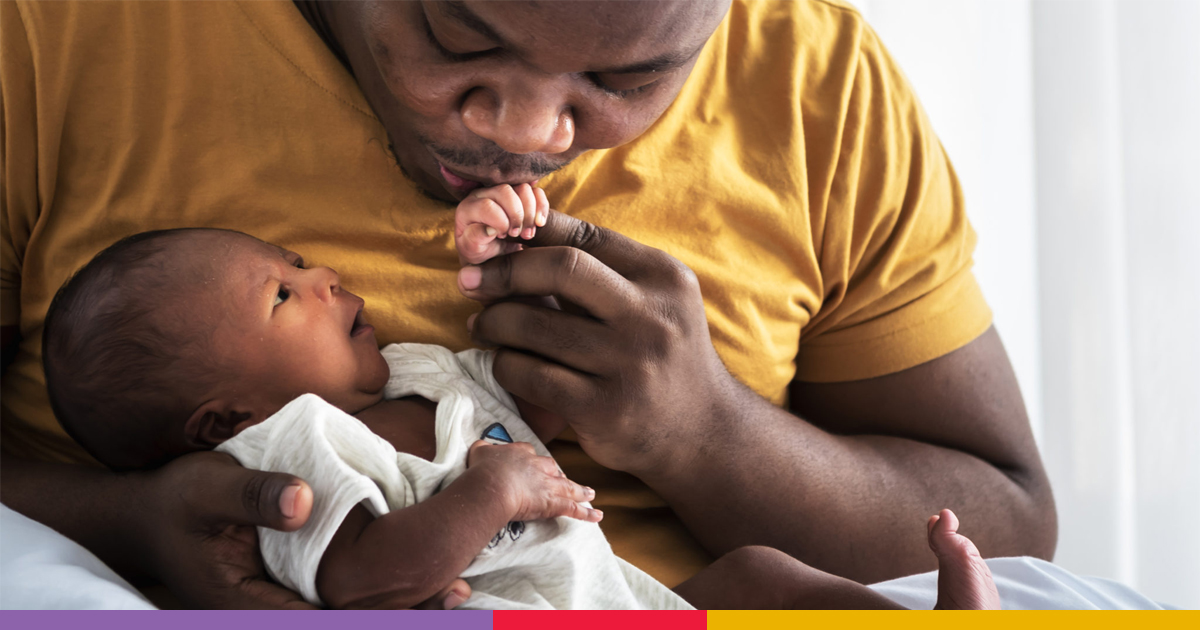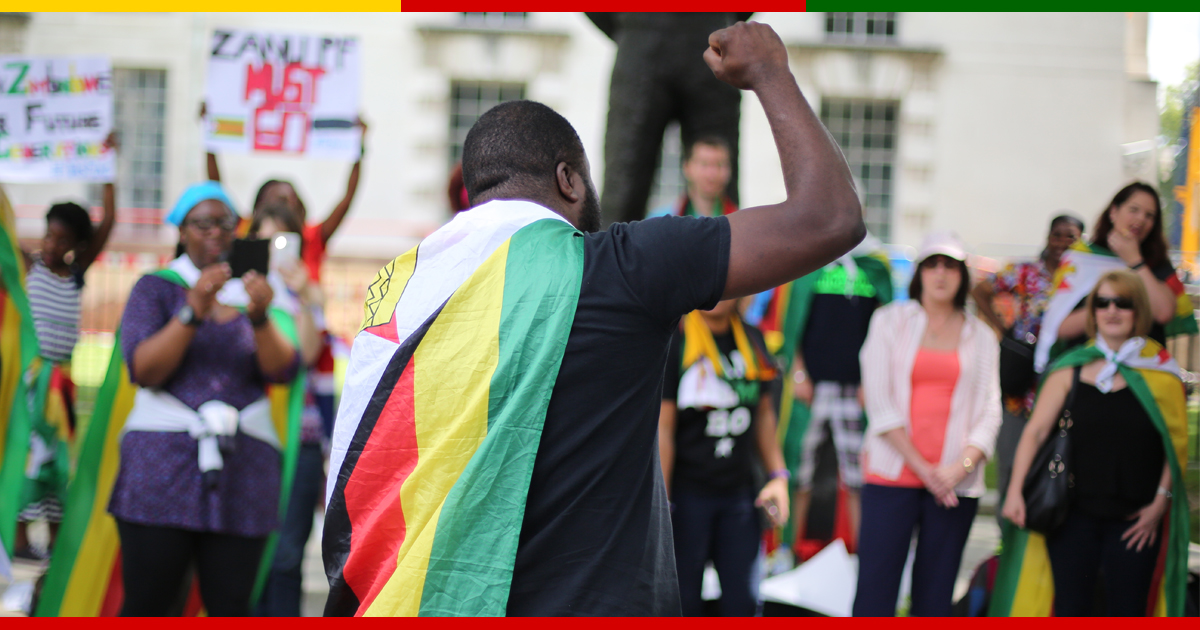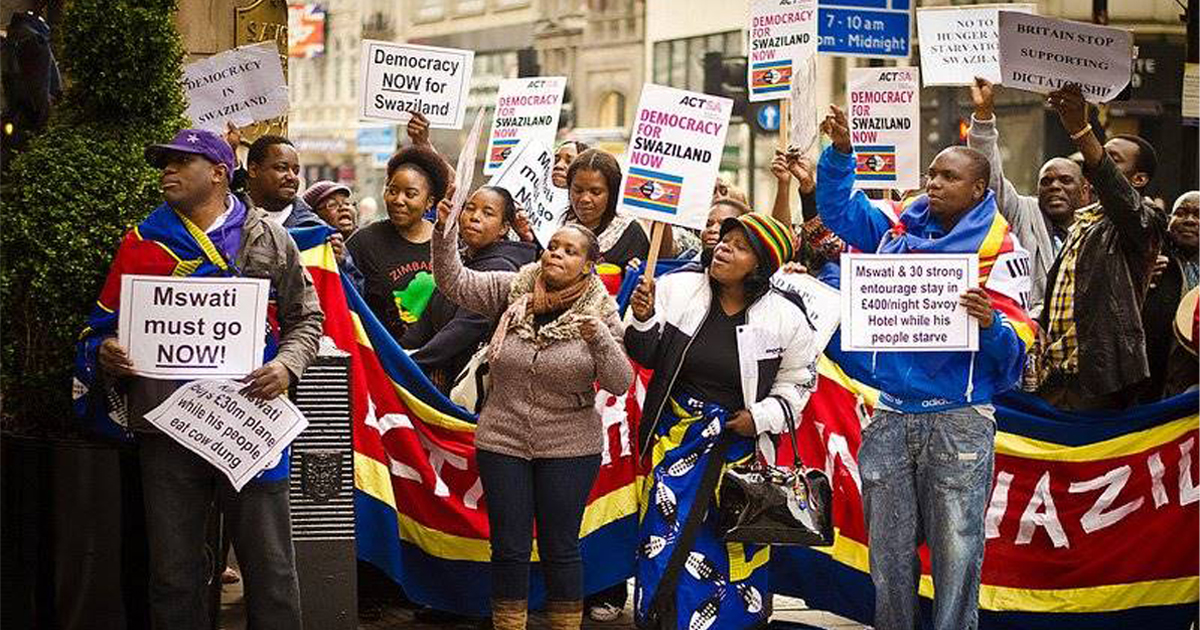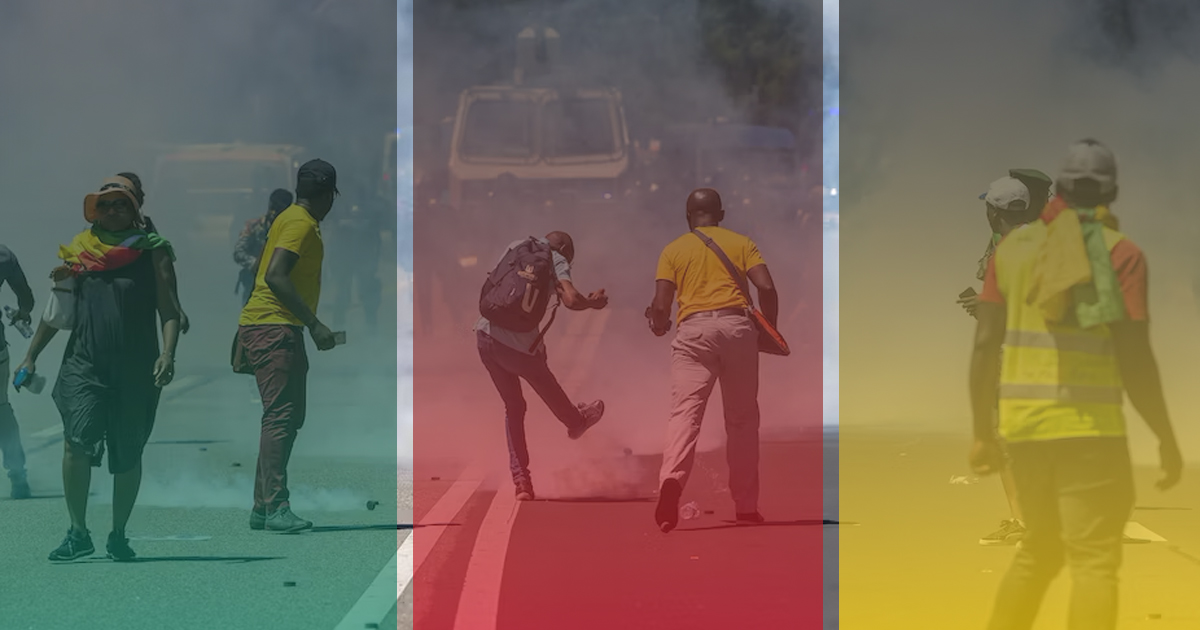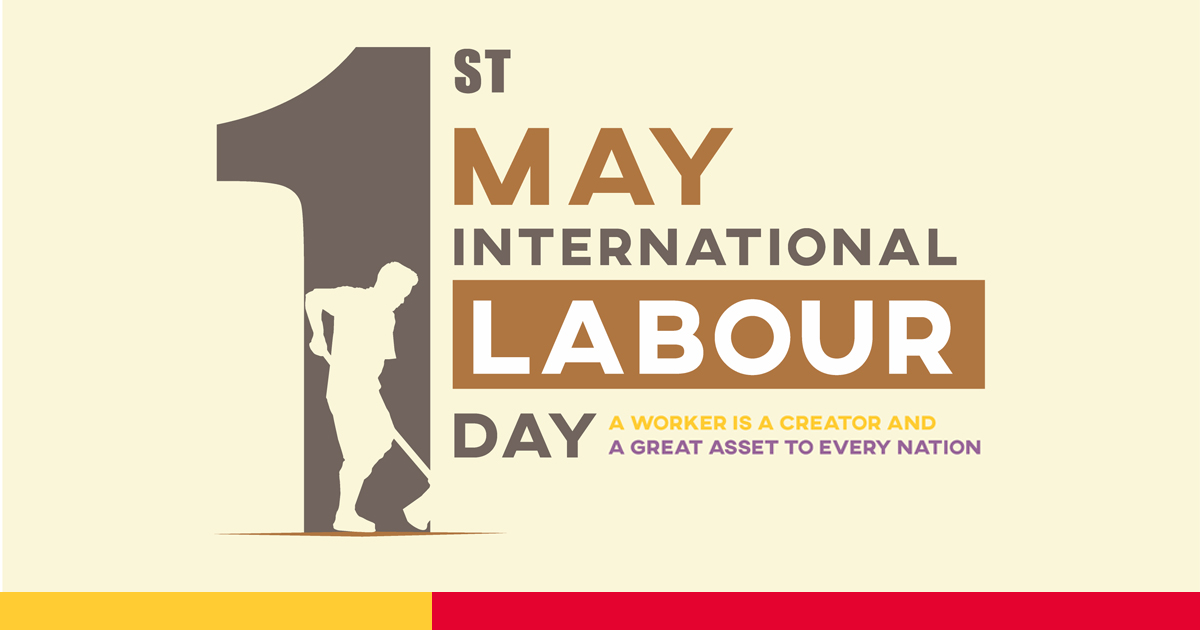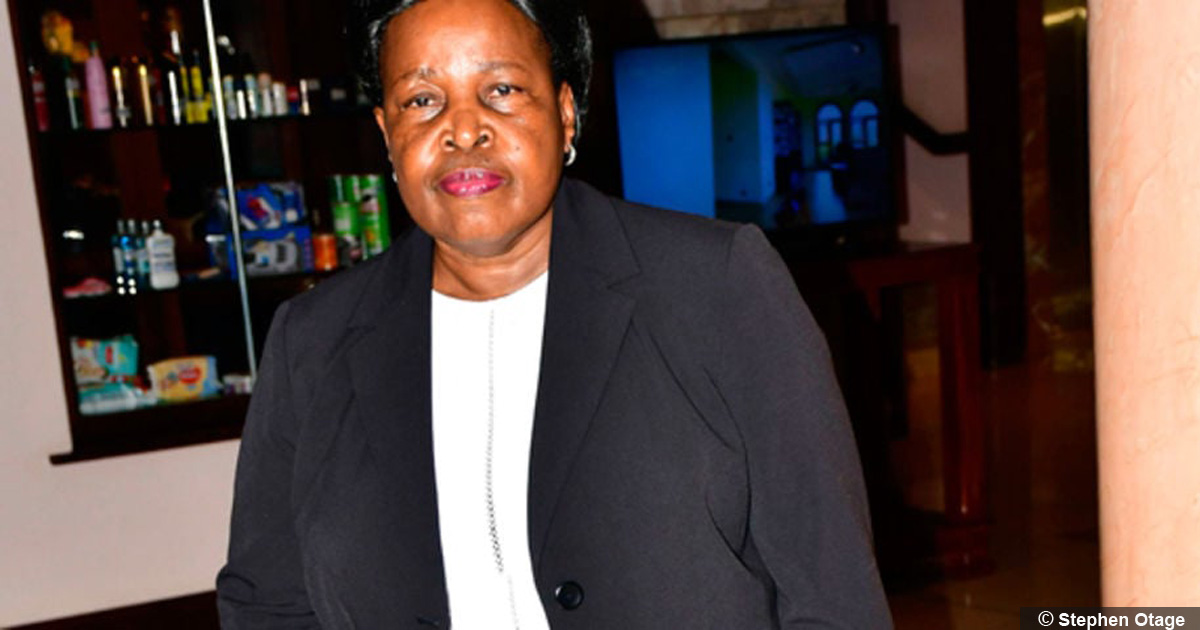- Details
The Centre for Human Rights, Faculty of Law, University of Pretoria, strongly condemns the double murder of Mozambique opposition (Podemos) political party’s lawyer (Elvino Dias) and representative (Paulo Guambe) on Friday 18 October 2024. The two were killed just hours before the start of planned protests challenging the results of the country’s elections held on 9 October 2024. There are concerns over allegations that these elections were altered unjustifiably to favour the ruling party, Frelimo, which is seeking to maintain its 49-year uninterrupted grip on power. Since the sad development on Friday, reports from the country reveal excessive use of force, including the police firing tear gas at independent presidential candidate Venânciao Mondlane and his supporters on 21 October 2024, who had gathered at the scene where Dias and Guambe were killed.
- Details
The Centre for Human Rights welcomes the landmark judgment handed down by the Pretoria High Court on Monday, 30 September 2024 in the case of The Embrace Project NPC and Others v Minister of Justice and Correctional Services Case no.:04856/22, Pretoria High Court]. In terms of the judgment, Baqwa J ordered that Sections 3, 4, 5, 6, 7, 8, 9 read with section 1(2) of the Criminal Law (Sexual Offences and Related Matters) Act 32 of 2007 are declared unconstitutional, invalid and inconsistent with the Constitution to the extent that these provisions do not criminalise sexual violence where the perpetrator wrongly and unreasonably believed that the complainant was consenting to the conduct in question, alternatively to the extent that the provisions permit a defence against a charge of sexual violence where there is no reasonable objective belief in consent. This significant judgment marks a pivotal moment in South Africa’s legal approach to prosecuting sexual violence cases.
- Details
In response to the emerging practice of pharmacists refusing to dispense abortifacients due to conscientious objection, the Centre for Human Rights, and 11 other public interest organisations, have addressed an open letter to the South African Pharmacy Council (SAPC) and the National Department of Health (NDOH). The open letter contains a legal opinion highlighting the significant, and adverse, impact of conscientious objection on access to safe and legal abortions.
- Details
The Centre for Human Rights, Faculty of Law, University of Pretoria is deeply concerned about the ongoing internal armed conflict in Sudan which erupted on the 15th of April 2023 between the Sudanese Armed Forces (SAF) and the paramilitary Rapid Support Forces (RSF).
The internal armed conflict began in the Sudan’s capital, Khartoum due to power struggle between the Sudanese Armed Forces (SAF) and the paramilitary Rapid Support Forces (RSF) following the 2021 coup. It has since spread over to other regions of Sudan resulting in massive human rights violations and a serious humanitarian crisis. The conflict sits at the core of Sudan’s political legacy which is characterized by impunity for grave international crimes, coups d’etat and military rule impeding Sudanese people’s struggle for democratic governance.
- Details
The Centre for Human Rights, Faculty of Law, University of Pretoria, condemns the continued mistreatment of the Maasai indigenous people in the United Republic of Tanzania. Over the years, the illegal and forced evictions of this indigenous group from the Ngorongoro Area have resulted in over 80,000 people being deprived of access to settlement and grazing lands on which their pastoral livelihoods depend.
- Details
The Centre for Human Rights, Solidarity Centre, International Lawyers Assisting Workers Network, Labour Research Service, and the Centre for Child Law have been admitted as joint amici curiae in the Constitutional Court confirmation proceedings of Van Wyk and Others v Minister of Employment of Labour (CCT 308/23) and Commission for Gender Equality and Another v Minister of Employment and Labour and Others (CCT 309/23). The amici have been given leave to file joint written submissions by the end of June 2024.
- Details
We, the undersigned organizations, write regarding the ongoing developments relating to the repeal of the Sections of the landmark Women’s (Amendment) Act of 2015, which criminalizes Female Genital Mutilation (FGM) in the Gambia. We are deeply concerned that these developments threaten the protection of the human rights and dignity of women and girls in the country, as well as in the region.
- Details
The World Press Freedom Day is commemorated annually on 3 May to reiterate State obligations to respect, protect and promote press freedom. The United Nations General Assembly proclaimed this day in December 1993. Three decades later, the need to celebrate the democratic contributions of an independent press and reaffirm commitments to protecting the press against existing and evolving threats to their freedom remains crucial.
- Details
The Centre for Human Rights, Faculty of Law, University of Pretoria welcomes the adoption of a resolution on ‘Combating discrimination, violence and harmful practices against intersex persons’ by the United Nations Human Rights Council during its 55th Session on 4 April 2024. Resolution #HRC55 is timely and important in so far as it recognises the discrimination, violence and harm that intersex persons are commonly subjected to because of harmful stereotypes, stigma, taboos, as well inaccurate information and misconceptions about persons with innate variations in sex characteristics.
- Details
The Centre for Human Rights (CHR) and the Psychological Society of South Africa (PsySSA) have been formally admitted as joint amici curiae (friends of the court) in the case of Embrace Project NPC and Another v Minister of Justice and Correctional Services and Others (Case no.: 48656/2022) (“Embrace Project case”).
- Details
The Centre for Human Rights, Faculty of Law, University of Pretoria, welcomes the launch of the "Principles and Guidelines for the Use of Digital and Social Media in Elections in Africa" developed by the Association of African Electoral Authorities (AAEA). The Guidelines and Principles were officially launched by Deputy President of South Africa Paul Mashatile. This notable milestone underscores the significance of integrating digital advancements while steadfastly upholding democratic values.
- Details
The Centre for Human Rights, Faculty of Law, University of Pretoria joins the voices of many human rights defenders and organisations in condemning the passing of the Human Sexual Rights and Family Values Bill by the Parliament of Ghana on 28 February 2024.
- Details
The Centre for Human Rights, Faculty of Law, University of Pretoria (Centre) is deeply concerned about the political situation currently unfolding in Senegal. Following President Macky Sall’s announcement on 3 February 2024 annulling the presidential elections earlier set for 25 February 2024, the actions of the Senegalese Government have continued to threaten digital rights in Senegal. The annulment is one of the most recent developments in a series of actions taken by the government leading up to the presidential elections over the past year. These actions include internet shutdowns, attacks on media practitioners and violent crackdowns on public protests. These actions violate various human rights including the rights to freedom of expression, access to information, freedom of association, freedom of assembly, and political participation as guaranteed in domestic national laws and under international treaties ratified by Senegal.
- Details
On 25 October 2023, the Gauteng Division of the High Court of South Africa handed down a revolutionary judgement in the case of Van Wyk and Others v Minister of Employment and Labour [2023] ZAGPJHC 1213. The judgment, penned by Sutherland DJP, declared the provisions of the Basic Conditions of Employment Act, 75 of 1997 (“BECA”) relating to maternity, parental, adoption and commissioning parental leave, as well as the relevant provisions of the Unemployment Insurance Act, 63 of 2001 (“UIA”), unconstitutional and invalid.
- Details
The Centre for Human Rights, Faculty of Law, University of Pretoria is concerned with the passage of the Criminal Law (Codification and Reform) Amendment Bill H.B 15 of 2022 (Patriot Bill) in Zimbabwe’s House of Assembly. The Patriot Bill, which was passed on 31 May, is overbroad, curtails freedom of expression, suppresses freedom of association and assembly and restricts political participation. The Patriot Bill proposes, among other things, to criminalises meetings with foreign governments for purposes of planning military intervention or calling for economic sanctions. The Bill will become law only after the Senate, the second parliamentary house, adopts it, and if President Mnangagwa assents to it.
- Details
The Centre for Human Rights, Faculty of Law, University of Pretoria is concerned with the gross and systemic human rights violations targeted at human rights defenders, political activists, and civil society actors; because of calls for greater reforms in Eswatini’s political governance system.
- Details
The Centre for Hunan Rights, Faculty of Law, University of Pretoria is deeply concerned about the ongoing Anglophone crisis in Cameroon, characterised by non-state armed groups in the North-West participating in violent conflict with the government of Cameroon over perceived discrimination on the basis of language.
- Details
Celebrating Worker’s Day in South Africa on 1 May 2023 has a hollow ring to it. Commemorating the achievements of the labour movement, including many important improvements to working conditions, and celebrating the crucial role of the working class in our country’s past and present, are overshadowed by the alarmingly high unemployment rate among South Africans. The precarious position of domestic workers demands more visibility about their rights and greater accountability for those who violate their rights. Acknowledging South Africa’s membership of the global community, and conscious of the undercurrent of xenophobia, consideration should be given to placing the rights of migrant workers on a firmer footing by ratifying the United Nations treaty on this theme.
- Details
The Centre for Human Rights, Faculty of Law, University of Pretoria (the Centre) denounces the conviction of Citizens Coalition for Change (CCC) party spokesperson Fadzayi Mahere. Mahere, a prominent political activist and lawyer, was found guilty by a Harare Regional Magistrate on charges of publishing falsehoods emanating from a retweet where she shared information that a police officer had beaten to death a child with a baton in Harare. The Court held that she undermined the authority of the police through her tweet and noted that her conduct was reckless and detrimental to the State as it intended to undermine the police force and also erode public confidence in the law enforcement agents. The contentious charges carried an imprisonment term of up to 20 years and a fine. The Court opted to impose a fine of USD 500 on Mahere and not a prison sentence.
- Details
The Centre for Human Rights, Faculty of Law, University of Pretoria (the Centre) expresses concern over claims of retaliatory disciplinary proceedings against a senior judicial officer in Uganda, Justice Esther Kisaakye of the Supreme Court. The Centre understands that the country’s Judicial Service Commission commenced inquiry proceedings into the conduct of Justice Kisaakye after her dissenting decision in the 2021 Presidential election petition filed by opposition leader, Robert Kyagulanyi Sentamu (Bobiwine), against President Yoweri Museveni. In that Petition, the Supreme Court of Uganda denied a later application by Sentamu to be allowed more time to change the main application, stating it was late. Justice Kisaakye, however, dissented on the basis that the applicant's illegal house arrest hindered timely submission.

